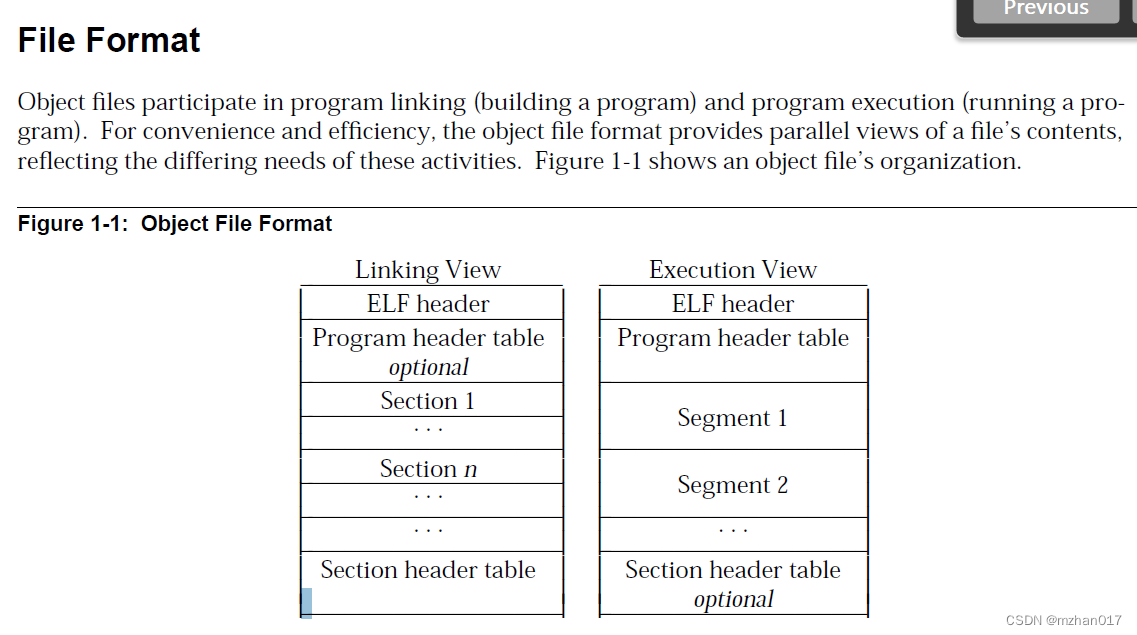[c++] 意识需要转变的一个例子,全局变量的构造函数先于main执行
最近还遇到一个例子是关于:从C转C++开发需要注意的一个意识问题。本人遇到的这个问题是,带着C的意识来看C++的代码,然后根据代码看,有一个全局变量的值在main函数进入之后才会更改,所以百思不得其解,这个变量怎么在main函数之前发生了改变?
这里的一个区别是,C++里全局变量的构造函数是先于main函数执行。当然在C的环境下也可以注册先于main函数执行的代码,这个有名的例子就是qemu/vpp的实现,里面有很多全局对象,最终会标记一个编译属性:
attribute((constructor));根据gcc文档里这个属性的作用:
The constructor attribute causes the function to be called automatically before execution enters main (). Similarly, the destructor attribute causes the function to be called automatically after main () completes or exit () is called. Functions with these attributes are useful for initializing data that is used implicitly
during the execution of the program.
那究竟是怎么实现的呢?这个可用通过查看一个qemu的调用栈,来看其中的流程:
(gdb) bt
#0 0x0000555555c5f6b0 in qemu_thread_create ()
#1 0x0000555555c67f69 in ?? ()
#2 0x0000555555c9a88d in __libc_csu_init ()
#3 0x00007ffff4874d18 in __libc_start_main () from /lib64/libc.so.6
#4 0x00005555558a859e in _start ()
binfmt_elf.c
/* Get the exec-header */
loc->elf_ex = *((struct elfhdr *)bprm->buf);
[root@vmtca-2003 ~]# readelf -e abc.elf
ELF Header:
Magic: 7f 45 4c 46 02 01 01 00 00 00 00 00 00 00 00 00
Class: ELF64
Data: 2’s complement, little endian
Version: 1 (current)
OS/ABI: UNIX - System V
ABI Version: 0
Version: 0x1
Entry point address: 0x3afe0
nm abc.elf | grep 3afe0
000000003afe0 T _start
这样就能捋顺了,是Linux内核的系统调用execve系列在加载二进制文件的时候,根据二进制接口读取了文件的exe头部,这个头部里含有程序入口点。这个入口点是_start函数。接下来_start会做main函数之前的一些初始化的工作,包含全局变量的构造函数的调用。
这就可以根据glibc里的代码查看具体是怎么实现的这个方式。
 header.e_entry This member gives the virtual address to which the system first transfers control, thus starting the process. If the file has no associated entry point, this member holds zero.
header.e_entry This member gives the virtual address to which the system first transfers control, thus starting the process. If the file has no associated entry point, this member holds zero.
本文来自互联网用户投稿,该文观点仅代表作者本人,不代表本站立场。本站仅提供信息存储空间服务,不拥有所有权,不承担相关法律责任。 如若内容造成侵权/违法违规/事实不符,请联系我的编程经验分享网邮箱:chenni525@qq.com进行投诉反馈,一经查实,立即删除!
- Python教程
- 深入理解 MySQL 中的 HAVING 关键字和聚合函数
- Qt之QChar编码(1)
- MyBatis入门基础篇
- 用Python脚本实现FFmpeg批量转换
- redis未授权访问漏洞的利用
- C语言项目总结
- 六、Spring 声明式事务
- Python+Yolov5+Qt交通标志特征识别窗体界面相片视频摄像头
- 12.29最小生成数K算法复习(注意输入输出格式),校园最短路径(通过PRE实现路径输出,以及输入输出格式注意)
- 操作系统 day15(信号量)
- Vue 3 父子组件传递数据
- 博特激光:紫外激光打标机在玻璃行业的应用
- 关于系统设计的一些思考
- 企业微信开发:自建应用:接收消息(企业内部服务器)/回调配置